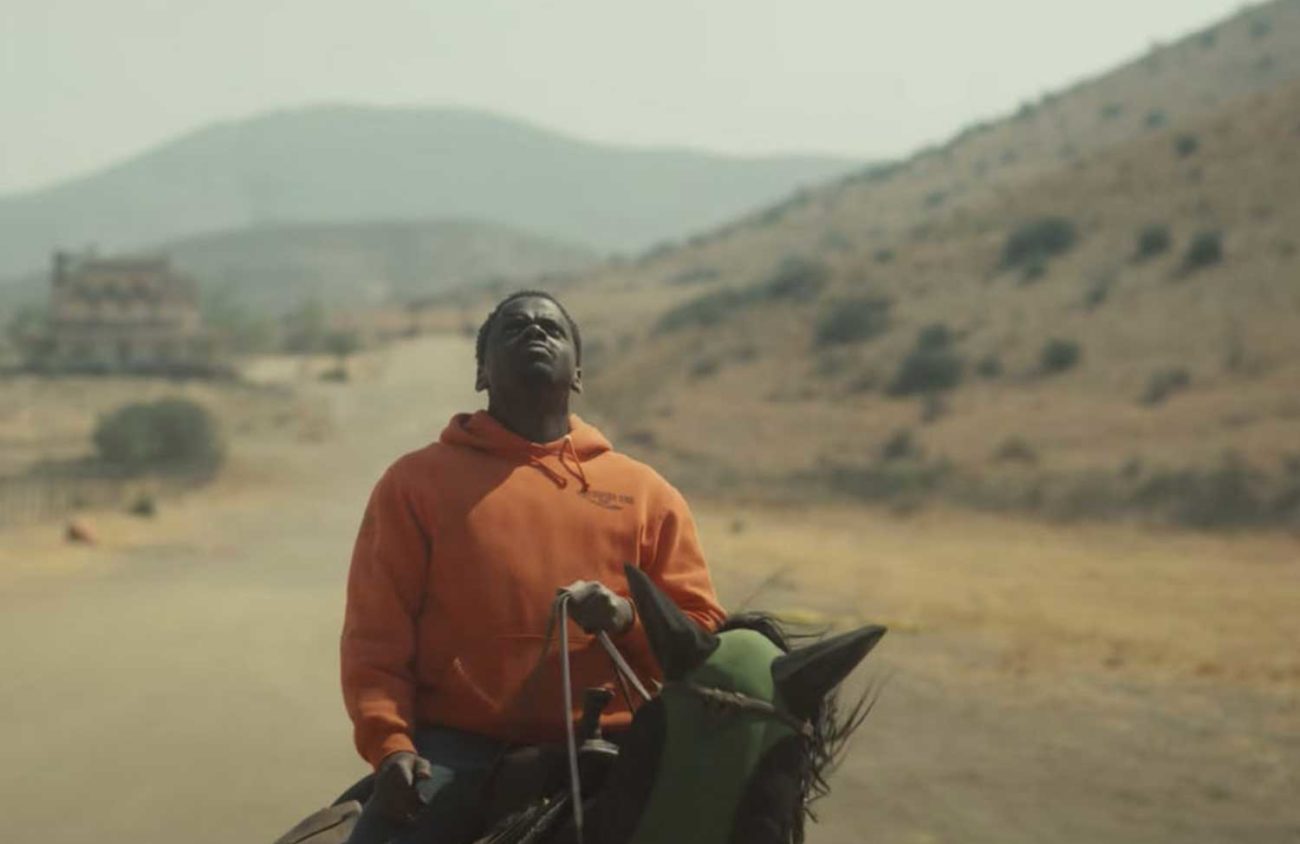Among the many qualities I might attribute to writer/director/producer Jordan Peele — expert auteur, biting satirist, modern horror maven — the only one that really gives me pause is “crowd-pleaser.” I’m a big fan of Peele’s debut, Get Out, even if I thought it warranted a more downbeat, less resolved ending, a la Invasion of the Body Snatchers. And his follow-up, Us, was an ambitious and fascinating mess of colliding themes and narrative illogic that nonetheless contained unparalleled moments of chilling weirdness and raw terror.
What I’m saying is that, as much as I admire Peele’s films, I honestly do not understand his third-act choices — that last part of the movie where, everything now being set up and ready to go, the worm turns and shit needs to get seriously dealt with. A perfect case in point is his new movie, Nope, on its surface a 21st-century reboot of that horror sub-genre that ranges from sci-fi creature-features to flying saucers and alien invasions.
For the first two-thirds of the film, I felt that euphoric, tingling sensation of experiencing the unfolding of a masterpiece. With excruciating restraint, Peele doles out the suspense: After the mysterious airborne death of Otis Sr. (Keith David), the scions of Haywood Hollywood Horses — taciturn Otis Jr., aka “OJ” (Daniel Kaluuya), and his flamboyant sister Emerald (Keke Palmer) — are left to pick up the reins of Tinsel Town’s premier Black-run horse wrangling outfit, without much success. The strain between the siblings is palpable, and financial concerns force OJ to sell off some of his movie horses to an amusement park adjacent to their property, Jupiter’s Claim, run by “Jupe” Park (Steven Yeun).
Add to this a bloody and totally terrifying subplot in flashback that shows Jupe, as a child actor on a silly sit-com, witnessing the devastating on-set rampage of the show’s star chimpanzee, and you’ve got a very strange and forebode-y mystery being set up. Painstakingly, Peele begins to let on that some of the problems the Haywoods are confronting might be, let us say, of an extraterrestrial nature: horses disappearing, objects falling from the sky, electricity blinking out.
Finally, OJ catches a glimpse of something huge in the night sky over their ranch, and it isn’t an airplane. But I’ve traipsed the spoiler line closely enough. Up to this point in the movie, Nope is near perfect: The satire (of racism, celebrity, media, conspiracy theories — everything) is deftly woven into a screenplay that ratchets up the dread with supreme patience. What Peele accomplishes here is something on par with Spielberg’s Close Encounters and Ridley Scott’s Alien, with a textual richness and whacked-surreal atmosphere that recalls Boots Riley’s Sorry to Bother You.
And then, precisely at that moment when the movie had a decision to make and things might have started lagging just a tad, I thought I could actually hear the gates clanging open on a Hollywood summer blockbuster. The very air changes, the pacing quickens, the tone elevates, and suddenly you know exactly how this whole shebang is going to end. Perhaps, considering the carnivalesque setting, that is exactly the point — and I’m willing to grant that.
What disappointed me, however, is that once the mystery was revealed and the outcome all but decided, the film’s accelerated momentum and big, burly action sequences actually strained my patience. The very point at which Nope abandoned its pervasive atmosphere of uncertainty and threat, for me, also marked that moment when it smothered its sense of risk. It was all over but the shouting. Onto the show!
Hopefully, it’s clear that, regardless (or perhaps because of) these minor concerns, I greatly admire Peele, and I think Nope is a really, really good movie. The cinematography (by Hoyte Van Hoytema) is stunning, recalling the work of the Coen Brothers’ go-to Roger Deakins; the sound design is killer; and the cast, which also includes Micheal Wincott as an uber-jaded Hollywood director and Brandon Perea as a Best Buy-type slacker service guy, is excellent — especially Kaluuya, whose tight-lipped slow-boil provides the film’s emotional touchstone.
Like his most immediate cinematic forebears — Quentin Tarantino, Steven Spielberg, Spike Lee — Peele is that rare artist who walks a fine line between artistic/thematic ambitions and the populist tendency to appeal to a mass audience. To put it bluntly, his movies are smart and fun, with minimal risk of alienating this or that camp. I’m still trying to figure out why Nope zigs when I deeply wanted it to zag, which might say more about me than anything to do with the movie.
Just maybe, I suspect, the answer to this lies in the third act itself, and the way the apocalyptic evil is confronted, on the one hand, by an aging white filmmaker who’s seen it all, and on the other by a pair of Black horse wranglers trying to save their ranch, and the planet to boot. Because, as everyone knows, when you look into the abyss, the abyss also looks into you. And the abyss is hungry.
See Nope at Broadway Metro and other theaters in Eugene and Springfield.
